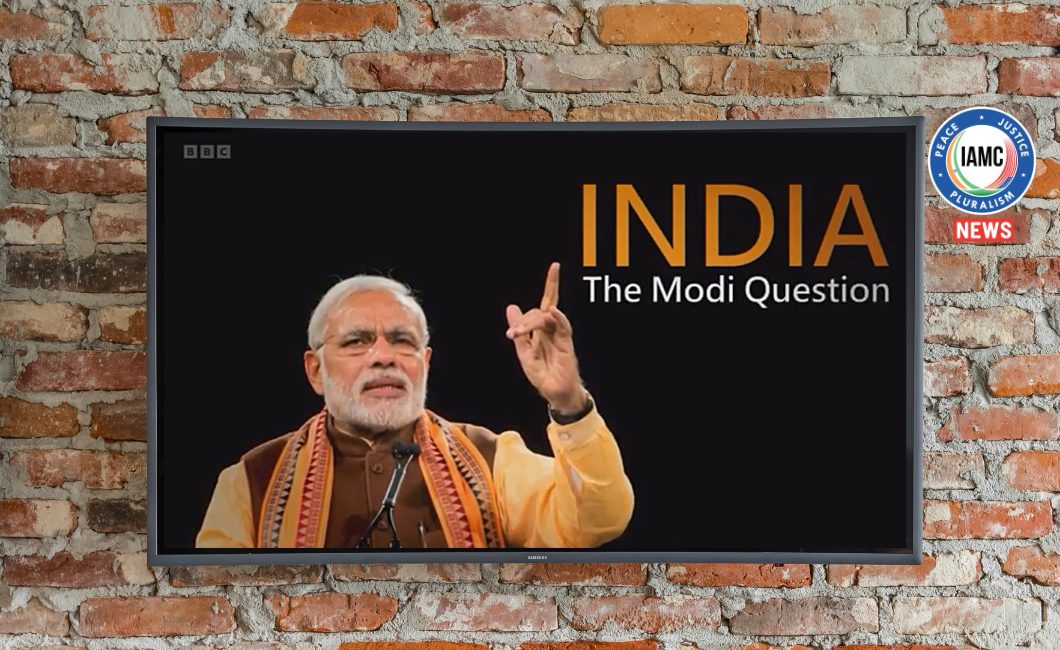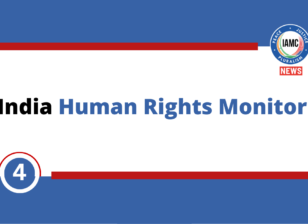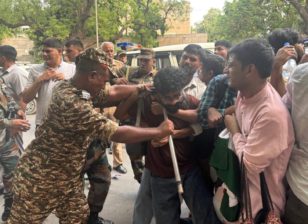US Government urges India to uphold press freedom after ban on BBC exposé of Modi
The United States Department of State urged India to give importance to press freedom and democratic principles, while responding to India’s ban on a BBC documentary critical of Hindu supremacist Prime Minister Narendra Modi’s role in the killings of nearly 2,000 Muslims in Gujarat in 2002.
“We continue to highlight the importance of democratic principles, such as freedom of expression, freedom of religion or belief, as human rights that contribute to the strengthening of our democracies,” US State Department spokesperson Ned Price said. “This is a point we make in our relationships around the world. It’s certainly a point we’ve made in India as well.”
Several media watchdogs have also slammed the government’s use of emergency powers to prevent clips from being accessed or shared online in India.
The Modi government on January 21, directed YouTube and Twitter to remove links to BBC’s documentary “India: The Modi Question.”
“The Modi government is clearly abusing emergency powers under the IT Rules to punish or restrict any and all criticism of its policies,” said Amy Brouillette, the International Press Institute (IPI) Director of Advocacy.
The Committee to Protect Journalists (CPJ) said that ordering social media platforms to block the documentary constitutes “an attack on the free press that flagrantly contradicts the country’s stated commitment to democratic ideals”.
The statements come as the screening of the documentary was disrupted at Jawaharlal Nehru University and Jamia Millia Islamia University. Delhi Police detained at least twelve students ahead of a planned screening of the documentary.
BBC’s second episode documents Modi’s track record of anti-Muslim policies
As the controversy around the BBC documentary on Prime Minister Narendra Modi continues to rage, BBC has aired its second episode zeroing in on the lynching of Muslims, revocation of Kashmir’s special autonomous status, the passage of the discriminatory Citizenship Amendment Act (CAA), and the anti-Muslim violence in Delhi in 2020.
The first episode of the documentary titled “India: Modi Question” focused on the 2002 anti-Muslim pogrom in Gujarat when Modi was the chief minister of the state.
“The second episode examines the track record of Narendra Modi’s government following his re-election (as prime minister) in 2019. A series of controversial policies – the removal of Kashmir’s special status guaranteed under Article 370 of the Indian Constitution and a citizenship law that many said treated Muslims unfairly – has been accompanied by reports of violent attacks on Muslims by Hindus,” said the BBC about the episode aired on Tuesday.
The episode tells the stories of Alimuddin Ansari, who was lynched by Hindu extremists in Jharkhand state; Faizan, who was beaten to death by policemen during the Delhi pogrom; Noor, who was put into the detention center in Assam state over false allegations of being an illegal immigrant; and Safoora Zargar, an anti-CAA protester who was jailed.
It includes comments from experts including famed writer Arundhati Roy, Amnesty India chief Aakar Patel, a former Bharatiya Janata Party (BJP) lawmaker and others.
Hindu mobs raise slogans against Prophet Muhammad while protesting filmstar’s movie
Hindu extremist mobs raised derogatory slogans against Prophet Muhammad while protesting the release of renowned filmstar Shah Rukh Khan’s movie Pathaan.
The video of the incident from BJP-ruled Madhya Pradesh state has gone viral on social media. The movie is in no way connected to Islam or the Prophet Muhammad.
Shows of the movie were cancelled at some theatres in the state after Hindu supremacist mobs carrying saffron flags barged into other theatres in the state and asked the audience to move out.
The movie, starring Khan, Deepika Padukone and John Abraham, was released on January 25.
Several Hindu supremacist groups have called for a boycott of Pathaan, which marks Khan’s return to the big screen after four years. They had also held protests across India against a song titled Besharam Rang as it features Padukone’s character in a saffron dress for a few seconds.



